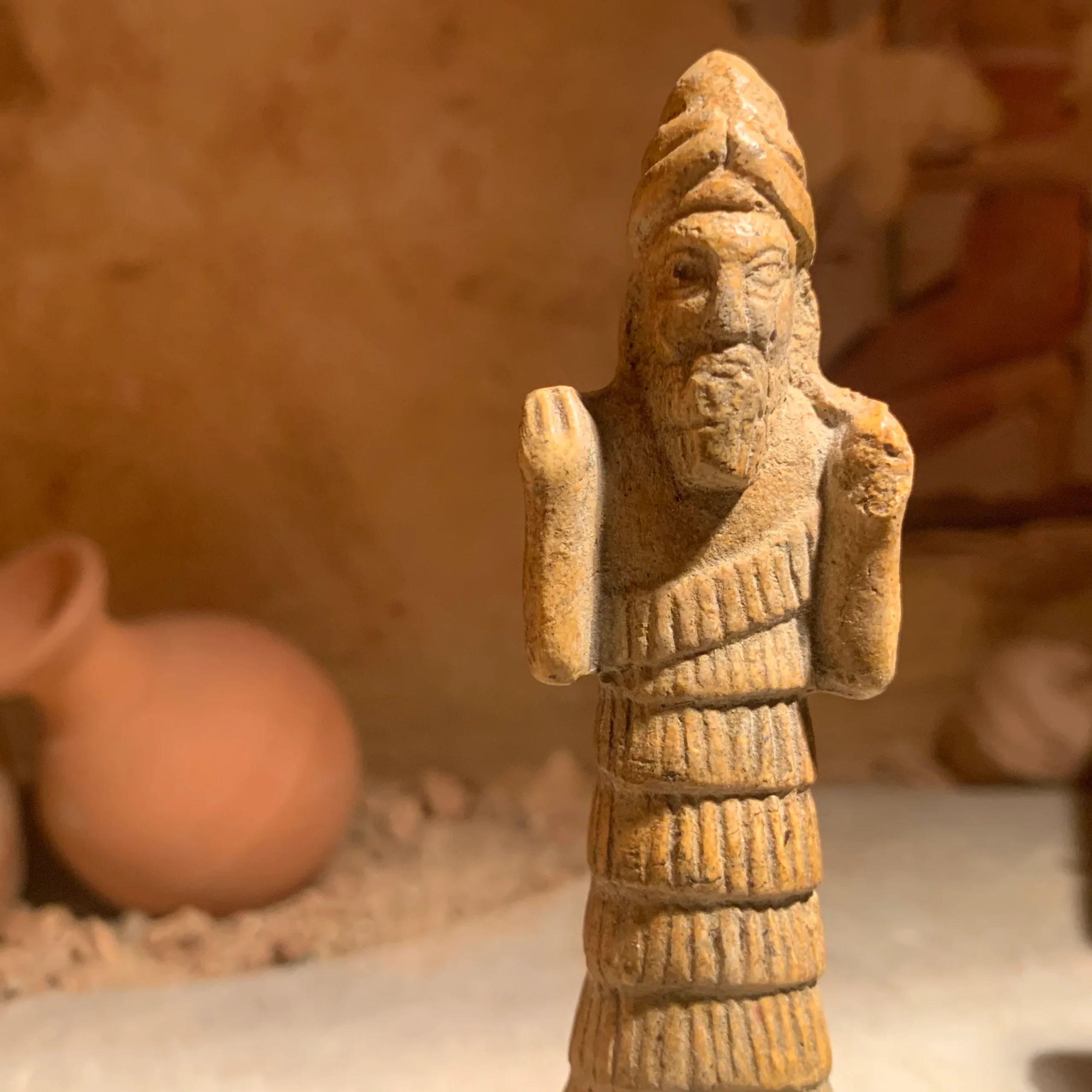
Sumerian mythology is the ancient belief system of the Sumerian civilization that flourished in Mesopotamia around 4,000 BC.
It is one of the earliest known religions and is full of stories about gods, goddesses, heroes, and monsters.
These tales provide insights into early human society and have been passed down through generations.
From stories of creation to epic battles, Sumerian mythology is full of fascinating facts and figures.
Here are some interesting Sumerian mythology facts that will give you a better understanding of this ancient belief system. Enjoy!
Fact #1: Sumerians believed that their gods lived in the sky.
The Sumerians believed in a pantheon of gods, all of which were thought to live high up in the sky.
These gods were seen as powerful forces that had control over nature, such as storms and floods. They also handled matters relating to human destiny, such as birth, death, and marriage.
This belief system was based on the concept of the divine order, a system that is still seen in many religions today.
Sumerian mythology stated that these gods lived in a dwelling place called “Dilmun” which was believed to be located somewhere above the earth.
According to their mythology, humanity’s duty was to please and appease these gods with offerings and prayers so as not to draw their anger.
Fact #2: Sumerians worshipped a moon god called Nanna.
Nanna was one of the major gods in the pantheon of Sumerian mythology. He was the moon god and represented wisdom, fertility, and divination.
It was believed that he had the power to control the ebb and flow of the tides as well as cause floods and storms.
He was also associated with fertility and agriculture, both of which were essential to life in early Mesopotamian society.
Nanna was often worshipped through offerings and sacrifices, particularly during new moons or full moons.
He was also seen as a symbol of justice and righteousness, as he was believed to be the one who judged the dead according to their deeds.
As such, Nanna had a major influence on religion in Sumerian culture.
Fact #3: Sumerians invented writing.
The Sumerians were the first civilization to invent writing.
They developed a complex set of symbols known as cuneiform, which they used to record their language and religious beliefs.
This system of writing allowed them to keep records of laws, literature, and business transactions, as well as make calculations on clay tablets.
The Sumerians also used cuneiform to document their mythological beliefs, including stories about their gods and goddesses.
This written record of mythology was one of the earliest forms of literature which have been passed down through generations to shape our understanding of ancient religions today.
Fact #4: Sumerians believed that demons could influence the lives of humans.
In Sumerian mythology, it was believed that evil spirits or demons could cause harm to humans in various ways.
These demons were seen as troublemakers, responsible for sickness and misfortune in people’s lives.
It was believed that the gods could intervene to protect humans from these demons by sending down magical creatures called “utukku” to battle them.
The Sumerians also used various rituals and incantations to ward off evil spirits and prevent their influence on daily life.
These beliefs were passed down through generations and still remain an important part of many ancient religions today.
Fact #5: Sumerians believed in an afterlife.
The Sumerians were one of the first civilizations to have a belief in an afterlife.
According to their mythology, those who lived righteous lives would be rewarded with entrance into the “Land of No Return” (also known as the “Land of the Dead”), while those who lived wicked lives would be forever banished.
The Sumerians also believed in an afterlife for animals, as evidenced by their practice of burying dead pets or livestock alongside humans.
In addition to a physical afterlife, they also believed that the soul could live on after death through acts of remembrance and veneration.
This belief in an afterlife has had a lasting impact on many world cultures, including those of the Middle East and Europe.
Fact #6: Sumerians had one of the earliest known codes of law.

Sumerians were home to some of the earliest known laws, dating back as far as 2200 BC.
These rules were written down on clay tablets and inscribed in cuneiform script. The laws dealt with topics such as property rights, inheritance, and family matters.
They were meant to be enforced by the deities and protect both the rich and poor from injustice.
In addition to providing a framework for Sumerian society, these codes of law also helped establish legal precedence for other ancient civilizations such as Babylon, Assyria, and Egypt.
They have since been adopted by modern countries around the world, providing a basis for our current legal systems.
Fact #7: Sumerians created the first calendar.
The Sumerians were also responsible for inventing the world’s first known calendar.
This lunar-solar cycle was used to track both agricultural and religious activities, including festivals, royal events and battles.
The calendar was divided into twelve months, with each month lasting around 29-30 days.
It also included an extra five or six days to make up for any discrepancy between the lunar and solar cycles.
This calendar served as the basis for many other ancient calendars, such as the Egyptian, Babylonian and Greek calendars, and remains in use in various parts of the world today.
Fact #8: Sumerians had an advanced understanding of mathematics and geometry.
The Sumerians were renowned for their impressive advances in mathematics and geometry.
They used a base-60 system to measure time, weight, and even geometry. They were also the first to develop a counting system using symbols, known as cuneiform.
Their mathematical knowledge was so advanced that it enabled them to make complex calculations on matters such as land surveys, taxation and astronomical events with remarkable accuracy.
This sophisticated understanding of mathematics and geometry has been passed down through many generations and is still used today in a variety of fields, including architecture, engineering, and economics.
Fact #9: Sumerians invented the wheel.
The wheel is one of the essential inventions of mankind, revolutionizing transportation and industry around the world.
The first known use of the wheel was by the Sumerians in Mesopotamia, sometime around 3200 BC.
They used it to move heavy objects such as stones and logs and also to transport goods over long distances.
The Sumerians also invented a form of cart with a frame, axle and two spoked wheels, which greatly improved their efficiency in transportation.
This invention has been improved upon over time but remains an essential part of civilizations around the world today.
Fact #10: Sumerian literature was very influential.
The Sumerians had a highly developed written language and produced some of the earliest known works of literature.
Their stories, poems, and proverbs were passed down orally for centuries before being recorded on cuneiform tablets.
These ancient works of literature were highly influential and had a lasting impact on later civilizations.
For example, the Epic of Gilgamesh, which tells the story of a Sumerian king in search of immortality, is considered to be one of the oldest pieces of literature in existence and has been adapted by writers and artists around the world.
In addition, many of the proverbs and wisdom literature from the Sumerian period have been included in modern works of literature, providing insight into our collective history.
The Sumerians were a remarkable civilization that left an indelible mark on humanity.
Through their impressive inventions and advances in mathematics, engineering, and literature, they helped shape the ancient world and our modern civilization.
Their legacy continues to inspire us today and will undoubtedly continue to do so for many generations to come.



